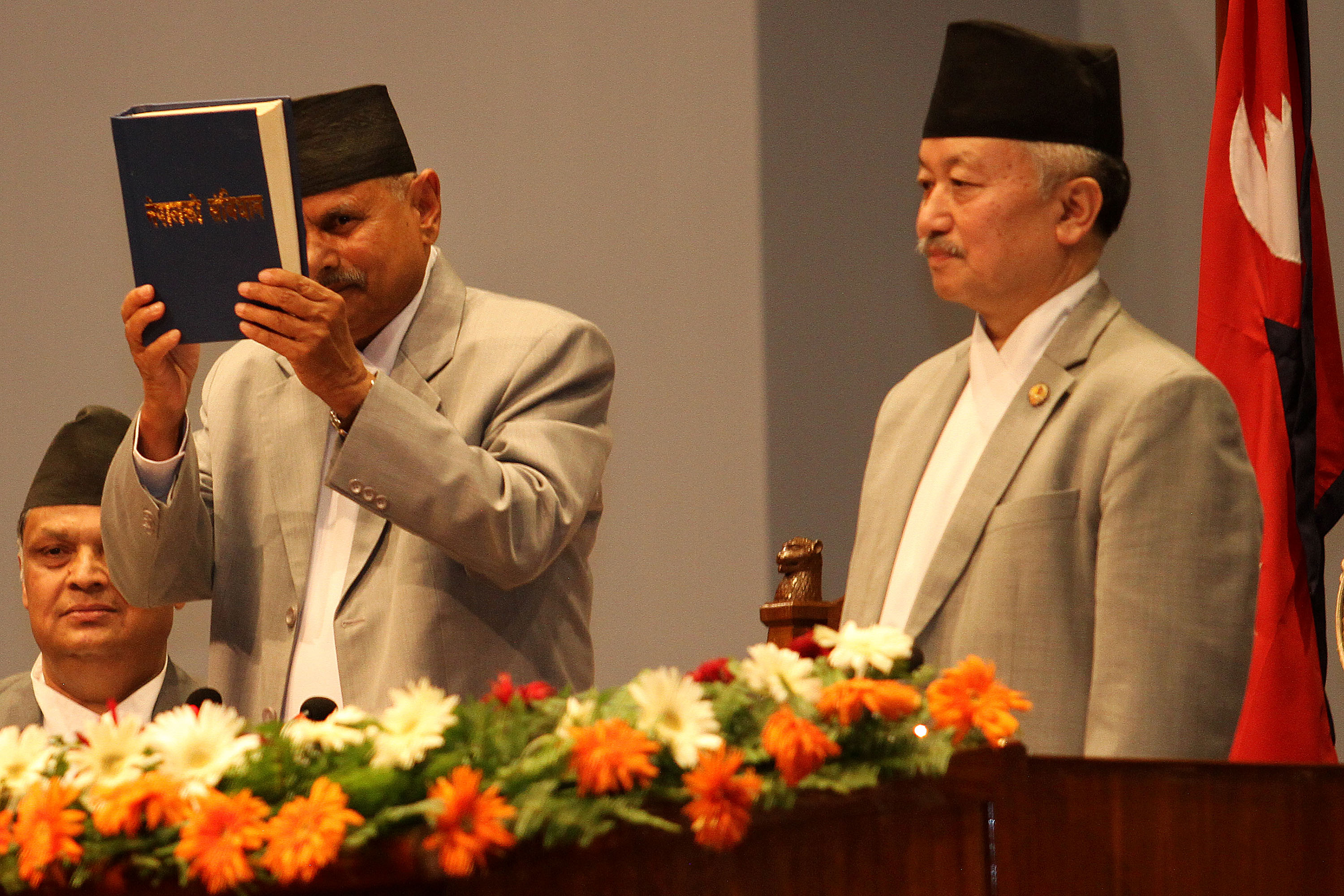American Message on Constitution Day: Khadga Prasad, Pushpa Kamal, and Rabi Gave This Message
Nepal’s Constitution Day: Struggles, Significance, and Controversies

On the occasion of Nepal’s Constitution Day, celebrated on Asoj 3, 2081, prominent political figures expressed their thoughts, providing new energy to the country. Marking the importance of Constitution Day, U.S. Secretary Antony Blinken extended his congratulations, emphasizing 77 years of friendship between the two nations. Similarly, Nepal’s key leaders, such as Pushpa Kamal Dahal, KP Sharma Oli, and Rabi Lamichhane, reflected on the importance of the constitution, emphasizing the need for its protection, implementation, and reforms.
American Message: Support for Democratic Values
On Constitution Day, U.S. Secretary Antony Blinken conveyed heartfelt congratulations and best wishes on behalf of the U.S. government. He highlighted the importance of the 77-year-long friendship with Nepal, proudly acknowledging America's contributions to Nepal’s economic growth through initiatives like the debt-free partnership with the Millennium Challenge Corporation (MCC). He reiterated America’s commitment to supporting Nepal in strengthening its democratic institutions, promoting inclusive democracy, and advancing justice.
This message is expected to further strengthen people-to-people relations between Nepal and the United States, where America has continuously provided economic and diplomatic support to fortify Nepal’s democracy.
Pushpa Kamal Dahal: Honoring Sacrifices and Protecting the Constitution
Pushpa Kamal Dahal 'Prachanda', the chairman of the CPN-Maoist Centre, paid tribute to the martyrs who sacrificed their lives in people’s movements and wars, emphasizing how the current constitution empowers marginalized communities based on caste, ethnicity, gender, and region.
Dahal stressed the importance of overcoming anarchy and authoritarian thinking, emphasizing that the constitution has ensured rights for all. He said, "Our responsibility is to safeguard and refine the rights the constitution has provided and transform the people's condition in line with the new system."
He underscored that the successful implementation of the constitution would lead the country towards good governance, social justice, and prosperity. Prachanda honored the wounded and missing fighters of the revolution, urging all citizens to move forward with renewed enthusiasm while making full use of the rights enshrined in the constitution.
KP Sharma Oli: Ending Autocracy and Exercising Rights
Former Prime Minister Khadga Prasad Sharma Oli, in his Constitution Day message, emphasized that the constitution has ended autocracy and empowered the people. He noted that the constitution safeguards the sentiments of all citizens, regardless of caste, gender, religion, or geography, and only by protecting the constitution can citizens protect their rights.
"When I think of the day we lost our freedom, the image of autocracy controlling society two decades ago comes to mind," Oli remarked. He called on the current generation to understand the importance of the constitution by remembering the past autocratic rule.
Oli urged the government and political parties to take stronger steps toward implementing the constitution. He affirmed his commitment to ensuring that the freedoms provided by the constitution are preserved, stressing the need to maintain the country’s democratic system.
Rabi Lamichhane: Constitutional Reforms and Political Mission
Rabi Lamichhane, president of the Rastriya Swatantra Party (RSP), mentioned in his Constitution Day message that the constitution plays an essential role in institutionalizing political changes. He expressed his wish for inspiration for all to make the constitution more prosperous and people-friendly.
During RSP’s national assembly, Lamichhane proposed several constitutional reforms and called on the public to engage in open discussions.
Expressing his determination to transform political objectives into reality through missions like the Mahakali-Mechi people’s march and national conventions, Lamichhane emphasized the need for further active involvement in constitutional reforms and political stability.
Nepal’s Constitution: Struggles and Formation
Nepal’s constitution, formally adopted in 2072, emerged after decades of struggle, establishing a federal democratic republican structure. The process of constitution drafting was marked by historical movements, including the people’s war, Madhesh movement, and various social and political struggles, ensuring citizen rights and inclusive representation in state structures.
After the failure of the first Constituent Assembly, the second Constituent Assembly, formed in 2070, moved swiftly to complete the constitution. This constitution represents Nepal’s diverse ethnicities, languages, religions, genders, and communities, making it a historic achievement for the nation.
Controversies: Criticism and Calls for Reforms
While Nepal’s constitution was widely welcomed, it has also faced criticism and controversies. Madhesi communities, indigenous groups, and women have raised concerns, arguing that the constitution does not adequately reflect their interests. Protests, such as the Madhesh movement, saw bloodshed, revealing dissatisfaction among certain groups.
There were disagreements over the federal structure, provincial boundaries, and governance models, leading to debates among political parties. Although efforts have been made to amend the constitution, they have not fully succeeded. New political forces, such as the RSP, have put forth proposals for constitutional amendments and reforms.
Future of the Constitution: Strengthening and Prosperity
Nepal’s constitution has guaranteed the protection of citizens' rights, social justice, and inclusive representation. However, for the constitution to be effectively implemented, political will and continued discussions for reforms are essential.
Constitution Day provides an opportunity for the Nepali people to reflect on the importance of the constitution, strengthen the institutional processes it has brought, and address its shortcomings.
Active participation in the process of constitutional implementation is vital to paving the way for a more stable and prosperous democracy.
Conclusion
The messages from Nepal’s key political leaders on Constitution Day 2081 have inspired the people to continue protecting and implementing the constitution. From the U.S. Secretary of State to leaders like Rabi Lamichhane, their proposals for constitutional reforms have added significance to the day.
There is a growing need for all stakeholders to responsibly move forward in efforts to make the constitution more inclusive, progressive, and prosperous.





![From Kathmandu to the World: How Excel Students Are Winning Big [Admission Open]](https://nepalaaja.com/index.php/img/70194/medium/excel-college-info-eng-nep-2342.jpg)


